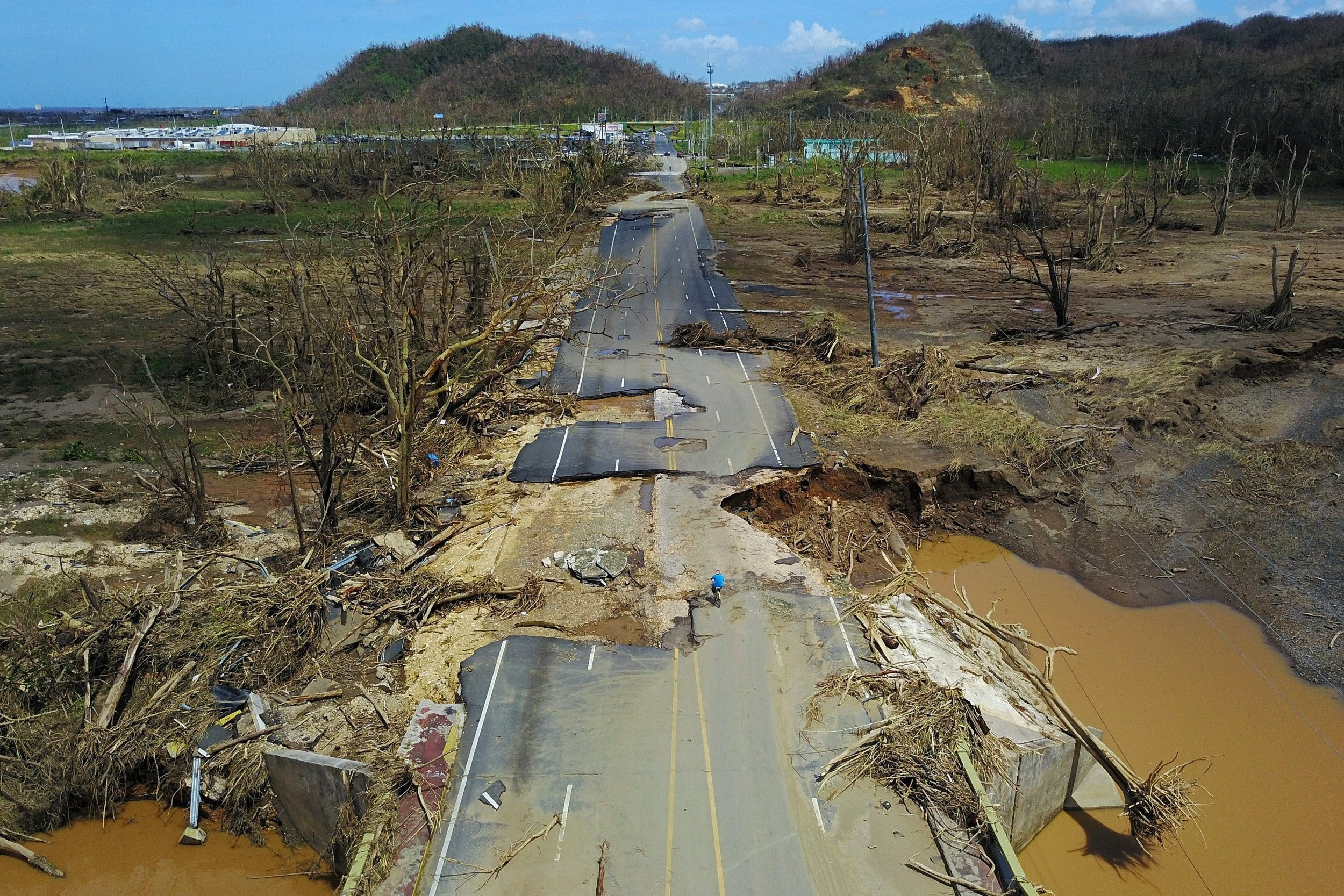A hurricane changed my life at 15 years old. It taught me how young people can help solve climate change
Youth around the world consistently prove themselves vital in lifting their communities. With the Covid-19 pandemic standing right beside this year's hurricane season, let's get all hands on deck, writes Salvador Gomez Colon

The night of 20 September 2017 changed my life forever. It was the night that Hurricane María, Puerto Rico's uninvited and unwelcomed visitor, unleashed mayhem and destruction on the island. I was 15 years old.
María was not going to pass unnoticed; it would be the strongest hurricane to hit Puerto Rico in over 50 years. In the hours preceding its landfall, tension and uncertainty overtook me. While I've grown up with my fair share of tropical storms and hurricanes, none came close to María's sheer strength.
Throughout María's landfall, fear, anxiety, and an acute sense of vulnerability clouded my mind. The flooding of my apartment and the building's swaying forced me and my family into the building's tiny gymnasium, where we sheltered alongside three other families, including their children, newborns, and pets. Within a few minutes of arriving downstairs, I was shocked by the storm surge engulfing our street, the winds shattering our condominium door, and a palm tree slicing right through a car. I couldn't wrap my head around the chaos that María was causing. If all of this was occurring in San Juan, I could not imagine what was going on in the coastal shantytowns or hillside dwellings.
As with any crisis, Hurricane María's impact would go far beyond the tangible. The island-wide power outage left Puerto Rico's 3.4m residents in the dark, which would end up becoming the longest power outage in US history. Food insecurity skyrocketed as a result of the hurricane, rising to 33 per cent, nearly three times the US average. Severe disruptions plagued healthcare services, which caused the deaths of thousands due to a lack of treatment and exacerbating mental health conditions.
Even as the Covid-19 pandemic has brought the world's activities to a standstill, the Atlantic hurricane season is already off to a fast start. Three named storms have already made landfall in the US, and Tropical Storm Fay is already fast approaching. The National Oceanic and Atmospheric Administration (NOAA) has already predicted an overly active and more powerful season this year, accompanied by a La Niña watch, which may usher in the most active hurricane season since 2005.
As I look back at the aftermath of Hurricane María, I realise that it wasn't only a humanitarian disaster but also a sociopolitical one. Most of the effects that María had on the island could have been prevented. To avoid another ill-fated recovery from a hurricane, and to change the narrative about natural disasters, we must go beyond the conventional interpretation of preparedness. We need the widespread empowerment of youth to support their communities.
Disaster preparedness should not be limited to having resilient infrastructure or reliable supplies of essential items. Empowering youth to respond during times of hardship must be brought to the forefront of the discussions regarding disaster mitigation. Youth around the world consistently prove themselves vital in lifting their communities. With the Covid-19 pandemic standing right beside this year's hurricane season, having "all hands on deck" is more important than ever, considering countless volunteers will be unable to travel to support preparedness and relief efforts. Making sure that young people are empowered and engaged is easier said than done, and it requires proactive efforts from both adults and young people themselves.
For youth, it all starts with the mindset. Merely because it's easier to turn a blind eye to hardship doesn't mean that one should. Hurricane María reminded me of the importance of embracing challenges and problems instead of ignoring them. Experiencing negative emotions during times of crisis is entirely typical, but by channeling our empathy, we will always be able to turn negative experiences into a positive impact.
By their stature in society, adults are in an excellent position to support youth in engaging meaningfully with their communities and fostering positive impact. This support can come in the form of mentorship, financial assistance, or in-kind donations to their efforts. As a young person myself, I can affirm that having adults' support and encouragement contributes significantly to sustain my efforts. It reminds me of the need for intergenerational collaboration, especially when supporting our communities in times of hardship.
In the wake of global climate change, natural disasters like hurricanes are developing more frequently and with increased strength. The risk posed to vulnerable communities, like islands and communities near coasts, increases by the day. The possibility of facing another storm's wrath haunts me as I recognise Puerto Rico's vulnerability to another humanitarian and sociopolitical crisis. However, I remain hopeful of a future when we act proactively and decisively to prevent them from happening. For more effective disaster preparedness and relief, empowering youth to support and serve their communities must become an integral part of the current approaches.
Salvador Gomez Colon is one of the World Economic Forum’s inaugural "10 Teenage Change-Makers" for his initiatives to help Puerto Rico recover after Hurricane Maria, and for his work as an activist and advocate for youth empowerment.
Join our commenting forum
Join thought-provoking conversations, follow other Independent readers and see their replies
Comments